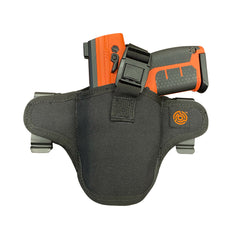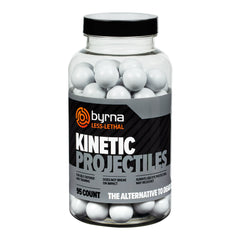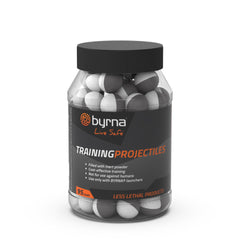
A weekend trip to the woods can fill your whole family with excitement and maybe a bit of worry all at once. You want to create those wonderful memories. But there's always that nagging thought in the back of your mind about lost car keys or curious wildlife showing up at your tent. Every parent knows this feeling. Let me share how to pack the right useful items and start some simple habits that'll help you worry less when you're out there enjoying your outdoor adventures.
Your family needs to cover five main security areas when you go camping - protecting your belongings from theft, making sure each person has their own safety devices, keeping your campsite safe, being ready for wildlife run-ins, and having solid emergency plans ready to go. These cover most of the camping situations you'll run into. Sure - you could cross your fingers and hope for the best. But a little bit of planning ahead goes much further than luck when your kids wander off, or the unexpected happens.
The right portable security options can keep your most important gear safe without weighing down your pack too much.
Let's talk about it!
Table of Contents
Portable Options to Keep Your Valuables Safe
More campers lose their phones and wallets every summer than you might expect. National Park Service reports show that petty theft at popular campgrounds has gone up by nearly 30% since 2019. The problem tends to get worse during busy holiday weekends when generators and camping gear disappear from even well-traveled sites. Most people assume their site is safe right up until something goes missing.
You need to lock up your essentials before someone else decides to take them. Portable safes work great because they bolt right into your car's trunk or cargo area - it takes about ten minutes to install one with basic tools. These metal boxes put a real barrier between thieves and your camera or cash. They're also built to take all of the bumps and rattles of camp life.
Compact lockboxes give you another layer of protection for your smaller valuables. You can tuck these cases under your vehicle seat or anchor them inside your tent. Cable locks let you tie bigger items like camp stoves or bikes to trees or your vehicle's frame. Thieves usually skip over items that take extra work to steal.

TSA-rated locks hold up against tampering better than the basic padlocks you might grab at a convenience store. Even a quick walk to the restroom gives thieves enough time to snatch visible items from your campsite. People usually think they can count on camouflage bags or hidden pockets in their gear, and that gear does help. But fabric tears pretty easily when someone wants what's inside bad enough.
Your driver's license and credit cards hand thieves everything they need for identity fraud. It takes weeks to get everything back while you're stuck dealing with banks instead of booking your next adventure. Your phone holds years of photos and contacts that are gone forever once someone takes it.
When you leave valuables out in the open, you're pretty much creating opportunities for theft. Cash, electronics, and jewelry left on picnic tables catch the eye of people walking by. Even locked cars get broken into when thieves see laptops or purses through the windows. Your expensive camera gear turns into a target the second someone sees it sitting there unattended.
Safety Tools for Your Outdoor Adventures
Personal safety tools are just as important as the other useful items you bring along. Whistles work well for families because they'll cut through forest noise and go much farther than your voice - in fact, sound travels much farther in wilderness areas than most people think. Look for whistles that produce at least 100 decibels so searchers can actually hear you from a safe distance away. How loud your whistle is will determine if help can actually find you. Lost children need their families to hear them through thick forests or across rocky ground. That whistle becomes your lifeline when you can't see well or when rough ground separates your group.

Your kids need to learn the three-blast distress signal before you head out on the trail. It's definitely worth practicing this at home because if you're trying to use unfamiliar gear during an actual emergency, you're going to waste valuable time. Personal alarms give you extra protection, and lots of models clip right onto backpacks or belt loops.
Bear spray is something you need to consider carefully, especially in terms of how far away you should be when you use it. The National Park Service says you should stay about 25 to 30 feet away from wildlife when you spray - if you get any closer, you won't have much time to move. Signal mirrors may look like they're from another era, but they can send sunlight for miles and never need batteries. How far your safety tool works is what determines if it'll actually protect you. Wildlife encounters happen fast, and there's not much room for error when facing defensive animals.
I've heard from search and rescue teams about a few cases where separated children were found very quickly after parents heard their whistle calls. One recent case was about a family whose eight-year-old wandered off during a nature walk but remembered to blow her whistle three times. Rangers found her within twenty minutes instead of what could have been hours.
You can't count on your smartphone to save the day when you're in remote areas. There are dead zones everywhere, and your battery might die right when you need it most - cell towers just don't reach every hiking trail. GPS trackers and satellite messengers give you another way to communicate when cell towers are too far away. Two-way radios keep family members connected during day hikes, and you don't have to worry about cellular networks. Your family needs backup options to stay in touch.
Modern LED headlamps now come with SOS strobe modes that help rescuers find you after dark. These flashing signals use distress patterns that search teams know immediately.
How to Keep Your Campsite Safe from Intruders
Motion-activated lights can help make your campsite much harder for anyone to sneak up on. When someone steps into the detection zone, these lights turn on and cast a bright light that draws attention to them. This works because most people who cause problems at campsites stay in the shadows. Most of these lights run on batteries and can last a few weeks on a single charge.
You can also set up perimeter alarms around your site. The newer portable versions are much easier to use than the old systems were. They'll send an alert to a receiver that you keep near your tent whenever something crosses the boundary. These systems give you an early warning whenever something comes near your camp. The wireless receivers can alert you from inside your tent without waking the whole family. You get those extra seconds to check out what's going on before it reaches your sleeping area.
Just watch out for settings that are too sensitive - they'll go off every time a raccoon walks by or the wind picks up. You'll end up with false alarms all night. Your batteries will die before midnight, and you'll annoy everyone around you. Nothing ruins a family camping trip faster than alarms beeping every hour through the night.

Where you put your tent matters a lot, too. Try to face your tent doors toward one another and toward your vehicle if you can. This creates natural sight lines so you can see what's going on around your camp. Rangers will tell you to keep your sleeping area at least 200 feet from where you store and cook food.
When you set everything up this way, you can see movement way easier. Your family stays within a protected area where everyone can see one another and talk without shouting. The 200-foot food storage guideline also cuts down on the risk of animals wandering through your sleeping area.
Trip lines with reflective tape work well in daylight but can be tough at night. Parents already have enough to handle with bedtime routines and trying to keep kids calm. They don't need to worry about family members tripping over security measures, too.
You do have to find the right balance, though. You want to protect your family, but you don't want to turn your campsite into some kind of fortress that bothers other campers or damages the natural area you came out to experience.
Keep Your Family Safe From Bears and Wildlife
Bears and other wildlife are the biggest safety problem you'll run into when you camp with your family. The numbers here are wild. Yellowstone had to close a few campsites in 2022 because campers didn't store their food correctly and ended up bringing bears into the area. That closure ruined thousands of trips that people had already planned. When you go family camping, you're putting multiple people in danger if you make just one mistake, and the way you get ready ahead of time is what keeps everyone safe who's counting on you to make wise decisions.
Bear spray works best when it can spray out to about 30 to 40 feet. You should have at least that much distance between you and any animal that walks into your campsite. Most people don't know just how fast bears can move. Try to keep the canister somewhere you can grab it right away. But you also need to make sure it won't go off by accident inside your tent.

Image source: https://www.flickr.com/photos/yellowstonenps/8938653418/in/photostream/
Storing your food takes more planning than most families think it will. Bear canisters are better than hanging bags in most places because some bears have figured out how to get around rope systems. Black bears, especially, have become really skilled at doing this over the years. Bears will remember for years when they find food at a campsite and come back to those same spots. You need to store everything with any kind of smell in these containers. This includes items like toothpaste and soap.
Where you set up your campsite makes a bigger difference than you probably think. You should stay away from areas near water sources or any trails that look like animals use them. Animals walk these same routes every day, and you don't want to put your tent right in their path. Open areas give you the time you need to respond since thick bushes and trees can hide animals until they're already right next to your camp. Try to find open areas where you can see everything around you.
Fire will keep most animals away on its own. But you need to check what the park laws say first. Some areas won't let you have open flames when it's been dry, and you don't want to break any laws. Rangers don't mess around with fire violations. Ultrasonic devices can help keep animals away. But you have to move them to different places and change up the sounds they make, or else animals will get used to them.
Making some human noise is better than trying to stay completely quiet. Animals are used to the wilderness being quiet, so when they hear people talking softly, it lets them know humans are around without making them feel threatened. Some soft music or just talking quietly tells animals that people are in the area, and most of them will stay away from where you are.
Safe Exit Plans for Your Family
Even the best prevention won't cover every situation that comes up. Emergencies can get chaotic fast. If you need to leave camp in a hurry, your family needs a plan that everyone understands and can follow without having to argue about it.
A simple evacuation plan keeps your family together when stuff goes wrong. Without a plan in place, parents waste precious time trying to decide what to do while their kids stand around confused. Your family's safety needs everyone already knowing what they're supposed to do before panic kicks in. First, get the basics down and pick one meeting place where everyone should go if you need to evacuate fast. Make it somewhere really obvious, like your car or the main entrance to the camp. Choose places that everyone can find, even in the dark. Each person in your family needs to know where to go and who to look for once they get there.

Your first aid kit needs to match your family's actual medical needs. If someone has allergies, pack their EpiPen where you can grab it easily. Kids need different amounts of medicine than adults do, so you should double-check that your supplies will work for everyone in your group. Those generic first aid kits you buy at the store won't help much if people in your family have specific health problems. Your child's asthma inhaler won't help if it's buried under a pile of bandages when they're having trouble breathing. When you customize your medical supplies for your family's needs, a possible medical crisis turns into something you can actually manage.
You should keep one bag packed and ready to grab whenever you need it. It's way better to have everything already packed than to run around camp throwing stuff together. Fill it with clean clothes for each person and the basic supplies you'd need if you had to stay somewhere else for the night. Store this bag near your vehicle so you can get to it even if it's pitch black outside.
Before you even set up camp, take a few minutes to talk to the park rangers about local weather patterns and where the evacuation routes are. Rangers know all kinds of tips that maps won't tell you. They know which areas usually flood first and where your cell phone will stop working.
Run through your exit plan once while it's still light outside. Go through the whole routine - who's going to grab the car keys, who's responsible for the emergency bag, and who's going to make sure everyone is there. When you're stressed out, people forget how to do basic tasks they normally do without even thinking about it. If you've already practiced how to evacuate, those steps will come naturally when you're in a real emergency.
Protect Yourself and Your Family
When you take the time to think through your family's camping security, it turns what could be a stressful adventure into a relaxing experience. If you secure your valuables with portable gear, you'll be free to look around without worry, while personal safety devices and solid communication keep everyone connected and protected. When you set up a decent campsite perimeter, you create that protective buffer zone between your family and the outside world, and if you're prepared for wildlife run-ins, you can enjoy nature from a safe distance. I've seen that most campers skip the perimeter step completely.
It's worth taking a few minutes to go through your camping equipment and check if you're missing any security items. You might want to practice with any new tools or devices at home before you head out.
Your gear works best when you understand how to use it under pressure. If you test everything ahead of time, you'll find out which items actually work when you need them most. Each trip teaches you something new about your family's specific requirements and comfort levels. When you practice at home, you won't fumble with unfamiliar equipment in the dark.

Every family deserves to enjoy camping without worrying about safety. When you're prepared and confident in your security measures, you're free to focus on making memories. Your children pick up on your stress levels more than you think. Speaking of personal protection, if you're looking for reliable self-defense options that don't need firearms, at Byrna, we make less-lethal tools that are legal in all 50 states with no background checks needed. Our patented pull-pierce CO2 system makes sure you're ready right away, with options that include pistols, rifles, and armored backpacks. Visit us at Byrna.com to find out why tens of thousands of reviewers trust us for their safety requirements.




